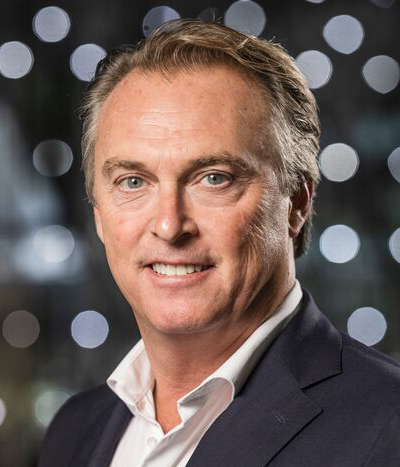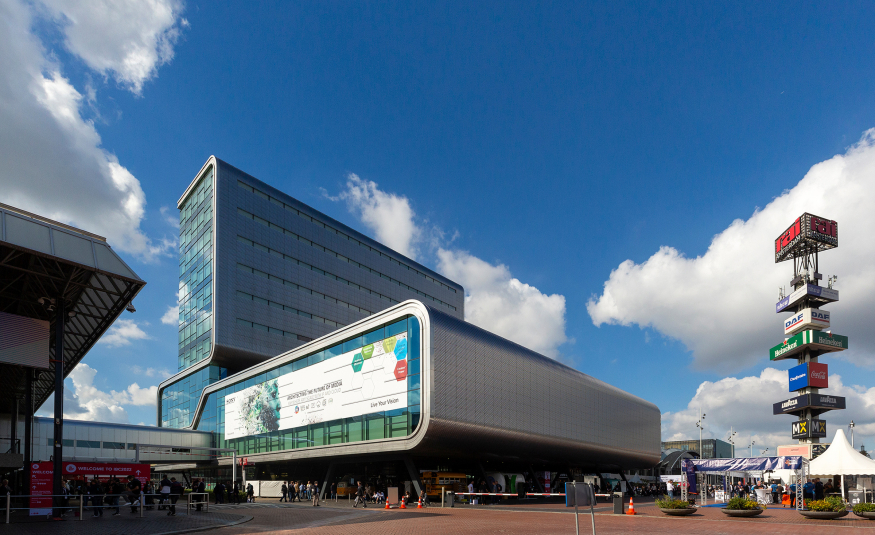From zero to one hundred and beyond in just one year… That’s perhaps the best way to summarise 2022 for RAI Amsterdam - so reads the Dutch venue’s recent Annual Report.
The first multi-day events started returning to the RAI Amsterdam late in March 2022 as the Covid restrictions were lifted, since when the halls have been rarely empty.
Last year saw a turnover of €118m as the RAI achieved a profit of €8.m. Nearly 1.2 million people visited the exhibition and conference venue and 300 (inter)national events (three of which were outside the Netherlands) took place in 2022.
Major trade exhibitions and conferences included the International Broadcasting Convention (IBC), Intertraffic and PLMA.
Economic impulse
Events at the RAI give a major economic impulse to the city and the region. The RAI processed some 27,000 hotel bookings in 2022, representing 90,000 overnight stays. Other hospitality venues and retail outlets also benefit from these visitors. Exhibitor and visitor numbers at the end of 2022 were largely back to pre-Covid levels and the RAI reports extending contracts with various major international organisers until at least 2026.
Sustainability
The RAI is also working on reducing food waste. Leftovers, lunches and dinners are prepared in collaboration with the Salvation Army and distributed to the homeless. And there are free parking spaces available for those with walking difficulties. And during major events, there are special ‘donation rooms’ where organisers and exhibitors can leave their left-over materials for good causes in Amsterdam.
The venue is working with the RAI Logistics Management System to spread the freight deliveries. Drivers have time slots so that they no longer have to wait. This also cuts down noise nuisance for local residents. And trucks now come in on one side of the RAI and leave the complex on the other side, near the motorway. Stand building is modular and sustainable and the materials are stored around the RAI and constantly reused.
 EW asked RAI COO, Maurits van der Sluis (pictured left) for his take on the recovery:
EW asked RAI COO, Maurits van der Sluis (pictured left) for his take on the recovery:
“We reopened properly in the spring of 2022 and were ready, albeit having to deal with a war, energy crisis and staff shortage. Exhibitions with an international audience quickly returned to their old level, although national exhibitions took a little longer,” says van der Sluis.
It was the large events such as Interclean that recovered the quickest, he notes.
“You can never compensate for the lost turnover of 2020 and 2021. Mediocre concepts that were already struggling showed their weakness in the Corona period and they did not survive. Very simply: if an exhibition is healthy and relevant, it will come back after Corona. If people haven’t missed you, you’re gone.”
“The only thing that seems to be permanently gone is the tie. I don’t see them anywhere.”
So, what has fundamentally changed in the business?
“Sure, we liked those digital parties in the beginning, but we soon had enough. I don’t see a hybrid business model for trade shows. At large conferences, people still want to meet each other,” says van der Sluis.
“Certainly, we had studios ready [for hybrid], but not much use has been made of them. Trading and meeting is contrived online,” he says. “The only thing that seems to be permanently gone in our industry is the tie. I don’t see them anywhere.”
The COO thinks the Metaverse will do something for the business and is a believer in building all year round communities.
“We see the meeting as the apotheosis of the community and we will increasingly function as a matchmaker. We can bring people together physically and digitally. The problem is that there is no direct revenue model for us in digital.
“We are also looking for partnerships and are the world leader in the field of water technology fairs. That is a field where you have a lot of communities and we put a lot of energy into setting up partnerships with parties that have built up an audience.”
Van der Sluis adds that the RAI lost almost €200m in turnover which it will never get back, but says the focus now is on the core business. “The occupancy of the RAI Amsterdam is good and we can grow internationally with our own exhibitions,” he concludes.





